High Noon, On the Waterfront, and Imagining Ourselves as Heroes
Two films from the 1950s hold powerful lessons for Americans in the Trump era
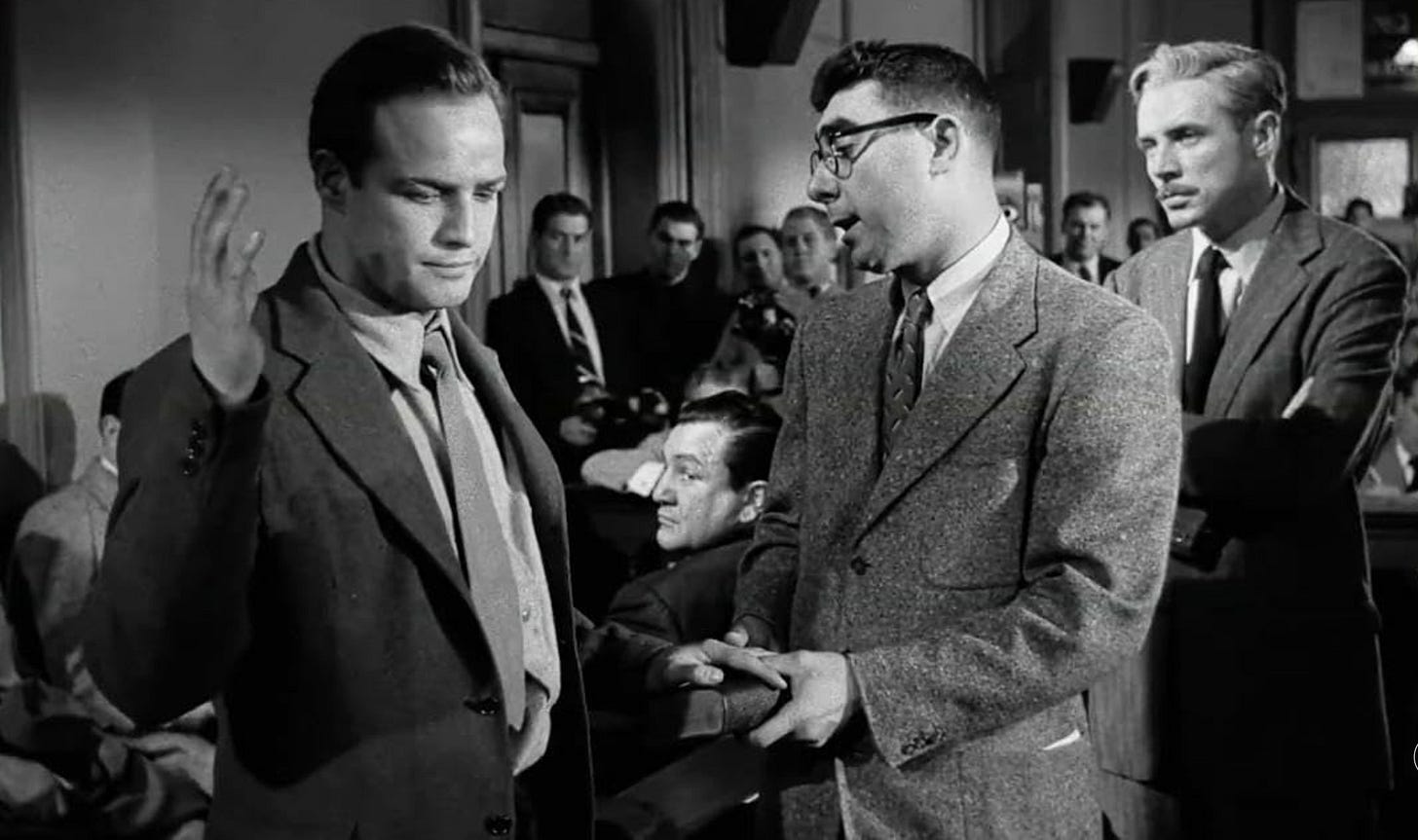
This is a tough time to be an author in the United States of America. For the past decade, those of us who write for public consumption have had to ask ourselves whether to address the polarized and chaotic politics of our day, and if so, how to do it. This is especially true for someone like me with a background in the political sphere and definite opinions on the issues of the day. When the political drama is dominating conversation in print, on social media, and in person, not writing about it seems far odder than the alternative. Add to that the increasingly high stakes of these political developments, and the need to speak to them—to warn people of imminent danger—no longer seems merely pressing. It can feel imperative: a matter of personal character.
However, while writing about political issues may gain more readers, it also alienates them. Furthermore, it distracts from anything else a writer is attempting to do, drawing the reader’s focus with an almost magnetic power. Those who live by the political screed will die by the same. Readers want their commentary pure, without admixture of divergent opinions. One wrong turn, and all is lost.
As we have moved through what I will term the Trump era (a period since 2015 in which American politics has been dominated by the rise of Donald Trump and people’s reactions for or against him), I have noticed two things in particular: 1) Attempts to sway readers’ opinions using direct, rational argument are essentially futile. 2) Constantly addressing political events directly is also exhausting and depressing.
I have therefore favored a strategy of addressing principles rather than events. That means I rarely call any politician out (or even mention them) by name. I often do not react directly to the latest news. Instead, I post theological or philosophical observations that are relevant to the moment. I also draw upon historical examples that are applicable to the current situation.
The beginning of President Trump’s second presidential term has stretched this strategy to the limit. For a variety of reasons, he has embarked on a more radical course this time around than he did in 2017-2020. I do not need to repeat all the controversial actions his administration has taken: you have seen them all over your social media feed or your favorite news outlet. It is getting harder not to respond to these actions directly, and some would deem me a coward for not doing so.
But if there is one thing you are not short on, dear reader, it is opinions about the actions of the Trump administration. Whether or not you consider mine any better than someone else’s comes down to your own experiences, beliefs, and stake in various possible outcomes. Since you read Sub-Creations, you are more likely than the average citizen to agree with me on political and theological issues, so maybe you would love to hear my analysis of trade policy, negotiations to end the war in Ukraine, et cetera.
Nevertheless, I remain convinced that the best way to assess our current moment and prepare ourselves for any eventuality is by looking to the past. No, America under Trump is not exactly like Germany in the 1930s, and anyone who tells you so is an idiot. (With all due respect…) But there are broad patterns that repeat, and I recently came across one worth examining.
This year, I have been viewing numerous films from the Golden Age of Hollywood, roughly 1930-1960. Last weekend featured two that are considered among the best America has ever produced: High Noon (1952) and On the Waterfront (1954). It was a coincidence that I watched them within the same 24-hour period, but as I read about their respective creations, I discovered they are bound together almost as reverse images. Both were made during the period when Hollywood personalities were being summoned before the House Committee on Un-American Activities (hereafter abbreviated HUAC), and the films’ plots speak to the divergent paths chosen by their chief creators: one who refused to name names, and one who consented.
In a time when civil liberties are again at the forefront of many Americans’ minds, this episode is worth revisiting.
The screenwriter Carl Foreman and director Elia Kazan had more in common than their mutual employment in the American film industry. During the 1930s, both had been members of the Communist Party USA during the Great Depression and the rise of fascism in Europe, a time when many American workers saw involvement with that party simply as a way to stand up for worker’s rights and thumb their noses at Hitler. When the Soviet Union signed the Molotov-Ribbentrop Pact with Nazi Germany, Communist Party membership in the U.S. nosedived. Kazan left the party, and Foreman only stayed in half-heartedly, opposing the party’s support for the Soviets.
The 1940s were good to both men professionally. Kazan became an influential figure in the acting discipline, promoting what was then known as “The Method” and is now typically called “method acting.” (Famous practitioners over the years include Marlon Brando, Robert DeNiro, and Daniel Day-Lewis, but virtually every modern performer is impacted by it.) Kazan became the leading director on Broadway, teaming with Arthur Miller for Death of a Salesman and Tennessee Williams for A Streetcar Named Desire.
Foreman found some success scripting films that focused on the experiences of military personnel during and immediately after World War II, contributing to the propaganda film Know Your Enemy – Japan in 1945, and then the contemplative Home of the Brave and The Men. The first two years of the 1950s brought Foreman a pair of Oscar nominations for scripting The Champion and The Men, while Kazan was nominated for directing the film adaptation of A Streetcar Named Desire. Then the moment that would divide them came.
In June 1951, Foreman was summoned to testify before HUAC about his previous involvement with the Communist Party USA. What the committee members most desired from him was what they wanted from everyone: the names of other people in Hollywood who were involved with or sympathetic to Communism.
The work of the committee was roundly criticized on civil liberties grounds. Some said its very existence was unconstitutional. Its questioning of the private opinions of American citizens was viewed as a violation of the First Amendment. While the committee justified its work by stating that those who showed sympathies toward Communism were potential traitors against the United States and active threats to national security, those under questioning argued they had only participated in the Communist Party to improve conditions for workers and had never supported the policies of Josef Stalin. They also pointed to the U.S. alliance with the Soviet Union during World War II and their personal desire to oppose the rise of fascism at home and abroad, an ultimate U.S. war aim.
Foreman and his producing partner, Stanley Kramer, had wanted to make a Western about a marshal named Will Kane who must face a band of outlaws alone after everyone in town refuses to help. Shooting was already underway by the time Foreman was called to testify. In doing so, he refused to name anyone with Communist ties. This sealed his fate: Hollywood executives by that point were enforcing an unofficial blacklist, denying work to anyone who refused to cooperate with HUAC or was seen to have Communist sympathies. Foreman’s partner Kramer cut ties with him. He lost his producing credit on the film which would be titled High Noon. Completing that movie was the last thing he did in Hollywood for quite a while.
Going through that experience during production caused Foreman to see himself in the plot. The courageous Marshal Kane, portrayed by long-time Hollywood star Gary Cooper, faced the same kind of ostracism that Foreman was experiencing from his colleagues in the film industry. In the finalized dialogue of High Noon, the excuses given by the townspeople for not supporting their marshal are often word-for-word what Foreman was hearing from his erstwhile friends.[1] The chief star of the Western genre, John Wayne, then president of the Motion Picture Alliance for the Preservation of American Ideals, not only turned down the lead role in High Noon due to its perceived Un-American themes, but actively campaigned against film upon its release and produced his own film Rio Bravo in response.
Elia Kazan was subpoenaed by HUAC in December 1951. When he first testified, he only spoke about his own time in the Communist Party, refusing to name names. But two powerful studio executives—Spyros Skouras and Darryl Zanuck—made it clear to Kazan that he must name names or face consequences. At the Oscars in early 1952, A Streetcar Named Desire also failed to win Best Picture, Best Director, or Best Actor despite sweeping all the other acting categories, which was perceived by many as a snub against Kazan’s and star Marlon Brando’s politics.
Fearing that his career would be over unless he bowed to the committee’s demands, Kazan voluntarily amended his testimony, naming eight individuals who had Communist ties. (You can read his testimony here.) Immediately, this decision won him career opportunities but lost him many friends and supporters. However, Kazan had become convinced that naming names was the right thing to do morally, not simply a pragmatic step to help his career. He took out a full-page ad in The New York Times to defend his choice.
As luck would have it, Kazan was also working on a project that had powerful similarities with his own situation. It was based on the true story of dockworkers in Hoboken, New Jersey who had opposed corrupt union leaders that were essentially running a mafia operation, using violence and terror to keep members in line and eliminating anyone who threatened to go public with complaints.
Playwright Arthur Miller, who had worked with Kazan on Death of a Salesman, was initially attached to the project which would be titled On the Waterfront, but he backed out when studio executives pushed for an explicitly anti-Communist message. (Kazan was eventually able to avoid going that route with the plot.) Then Miller’s friendship with Kazan was severed when the latter named names. The year after Kazan’s testimony, Miller debuted his play The Crucible, a fictionalized depiction of the Salem Witch Trials that is now considered the seminal work of the period criticizing the HUAC investigations.
Kazan found a new screenwriter in Budd Schulberg, who had also recently named names to HUAC. The two of them re-crafted the tale in which longshoreman Terry Malloy agonizes over whether to inform on union boss Johnny Friendly, whose corruption has expanded to include increasing murders. Malloy ultimately does testify in court against Friendly, part of a redemptive arc that suggests cooperating with the authorities is not “ratting” but the necessary duty of any person who has it in his or her power to protect others from crime. Kazan came to see this as his own role in American society. He was like Terry Malloy, bravely speaking up and accepting the painful consequences, hoping that his actions would inspire others.
Despite being one of Kazan’s protégés, Marlon Brando initially turned down the role of Terry Malloy, angered over Kazan’s testimony to HUAC. It was not a simple matter of political opinion: people who were named to the committee often had their careers ruined and livelihoods destroyed, with many having the emigrate to find work. Some fell into such depressions that they committed suicide. In the end, Brando agreed to participate in the project, but his relationship with Kazan would never be the same.
Although the specifics of High Noon and On the Waterfront are very different—one takes place in New Mexico Territory during the 19th century, while the other is set in metro New York City in the mid-20th century—the stories are similar in their essentials. In both cases, an individual is forced to stand up to a powerful bunch of criminals after others are too afraid to do so. Yet, in one case, the hero is the man who names names, and in the other, it is the man who refuses to name names.
You would not necessarily know this if you viewed the films unaware of their historical context. While it is clear in On the Waterfront that the hero names names, there is no reason to conclude that the hero’s decisions in High Noon symbolize not naming names. It is only by looking behind the scenes that we realize one is the work of the political Left and the other of the political Right, or at least something closer to the Right.
Both films are excellent from a technical standpoint and considered milestones in the discipline of filmmaking. I confess that I prefer On the Waterfront: the script, story, performances, cinematography, and Leonard Bernstein score are superior. I would place it in the top ten films in the history of American cinema. But I also believe there is a key difference between the narrative of that film and Kazan’s personal story: the people Terry Malloy names have already committed numerous acts of violence and threaten to do the same again, while it is unclear whether the Communist sympathizers in Hollywood (either real or perceived) posed a threat to the United States. Certainly, they were not accused of any prior criminal activity.
We may equally ask if Will Kane’s trajectory in High Noon really mirrors that of individuals who refused to cooperate with HUAC. Sure, the sense of social ostracism is similar, but that is only one part of the difficulty Kane faces. Central to the plot of High Noon is the fact that Marshal Kane had previously done the town good by ridding it of criminals, but the residents are mostly ungrateful for this work. In fact, some of them stand to benefit from criminal activity and are happy to welcome back the pardoned Frank Miller and his gang.
Additionally, when Kane asks the town’s residents for backup in his showdown with the Miller gang, he does so on the basis that these outlaws pose a threat to everyone, not only himself. In the end, only Kane is willing to put his neck on the line and stand up to the criminals. By contrast, Carl Foreman chose not to name potential criminals to HUAC. Now, we can certainly debate whether anyone he might have named was actually involved in criminal activity. But for Foreman, the dangerous enemy was HUAC itself, and he was protecting the workers of Hollywood from governmental overreach by refusing to cooperate with it. The outlaws were the McCarthyian members of the House of Representatives, not the Communist sympathizers.
What point am I attempting to make? Namely this. Americans place heavy emphasis on the power of the individual to change society, the sacrosanct nature of the personal conscience, the need to be one’s authentic self before a watching world. We are not the only people who do this, but there are few nations whose identity has been so wrapped up in individualism as the United States.
Furthermore, the tale of our founding is one of a plucky band of individuals standing up to an oppressive global superpower. Again, we could debate the accuracy of that interpretation, but it has seeped into the national consciousness to such an extent that even those Americans who are complete historical revisionists cannot escape their preference for individualism. As a result, while Americans do not necessarily rejoice when they are left standing alone without anyone to support their point of view, they do derive a sense of empowerment from it in the form of self-righteousness.
The fantasy of being the lone person who courageously takes on a corrupt institution has inspired numerous American stories, both in fiction and reality. (Think of other films where an individual or small group stand up to corruption like Mr. Smith Goes to Washington, To Kill a Mockingbird, 12 Angry Men, All the President’s Men, Philadelphia, Erin Brokovich, and Spotlight.) Shakespeare said we are all players on the stage of the world, and when Americans play the hero, we do so in an American manner. It is therefore unsurprising that art imitated life for both Foreman and Kazan.
These men faced the same decision: whether to cooperate with the regime. They went two different ways, yet both believed themselves entirely in the right. Until their deaths, neither man expressed doubt or regret. As the decades passed, fears of Communism receded, and Hollywood became an almost exclusively Democratic enclave. Foreman began to be lauded as a hero and Kazan reviled as a villain. Foreman eventually received recognition as the anonymous screenwriter of The Bridge on the River Kwai and secured his place in Hollywood history. Meanwhile, when Elia Kazan received an honorary Oscar in 1999, Marlon Brando refused to present it and many of those in the audience denied him applause.
The U.S. federal government is once again dominated by the Right as it was in the early 1950s. The Republican Party is very different now than it was then, or even than it was at the beginning of this century. It has shifted significantly on economics and foreign policy. (It is the Democratic Party that is more concerned with Russian influence presently.) But in one way, Republicans are very much like their forbears: they believe in law and order.
This is not to say that Democrats favor complete anarchy or have no interest in policing Americans’ behavior. Quite the contrary, in fact. But while the Progressive movement has been roundly criticized for “cancelling” individuals over all manner of social sins (a process similar to blacklisting), it is the Trump administration that is currently making efforts to purge federal departments of individuals deemed uncooperative, remove DEI programs from institutions both public and private, and even deport individuals deemed to have unsavory views. It is not hard to imagine the current House of Representatives setting up a commission to survey Un-American Activities, with university professors and Hollywood screenwriters getting called in to testify.
This means that, once again, Americans will have to choose whether to cooperate with the regime. As always, Hollywood is in the spotlight due to its cultural influence. (Though “Hollywood” is much more nebulous now than it was in the 1950s.) Could we see something like the blacklist return? I doubt it, because unlike the early 1950s, when the chief personalities influencing studio policy included staunch Republicans like John Wayne and Ronald Reagan, and actors were nearly as likely to belong to one party as the other, there are few prominent Republicans left in Tinsel Town. That would make it easier for studio executives and high-salaried stars to close ranks and protect each other.
But no matter what choices are made by people in Hollywood or Americans employed outside the entertainment industry, we will certainly all believe ourselves to be on the side of the angels, standing up to evil forces infecting our society. That itself is a danger. Our tendency toward self-righteousness blinds us to the nuances of our situation.
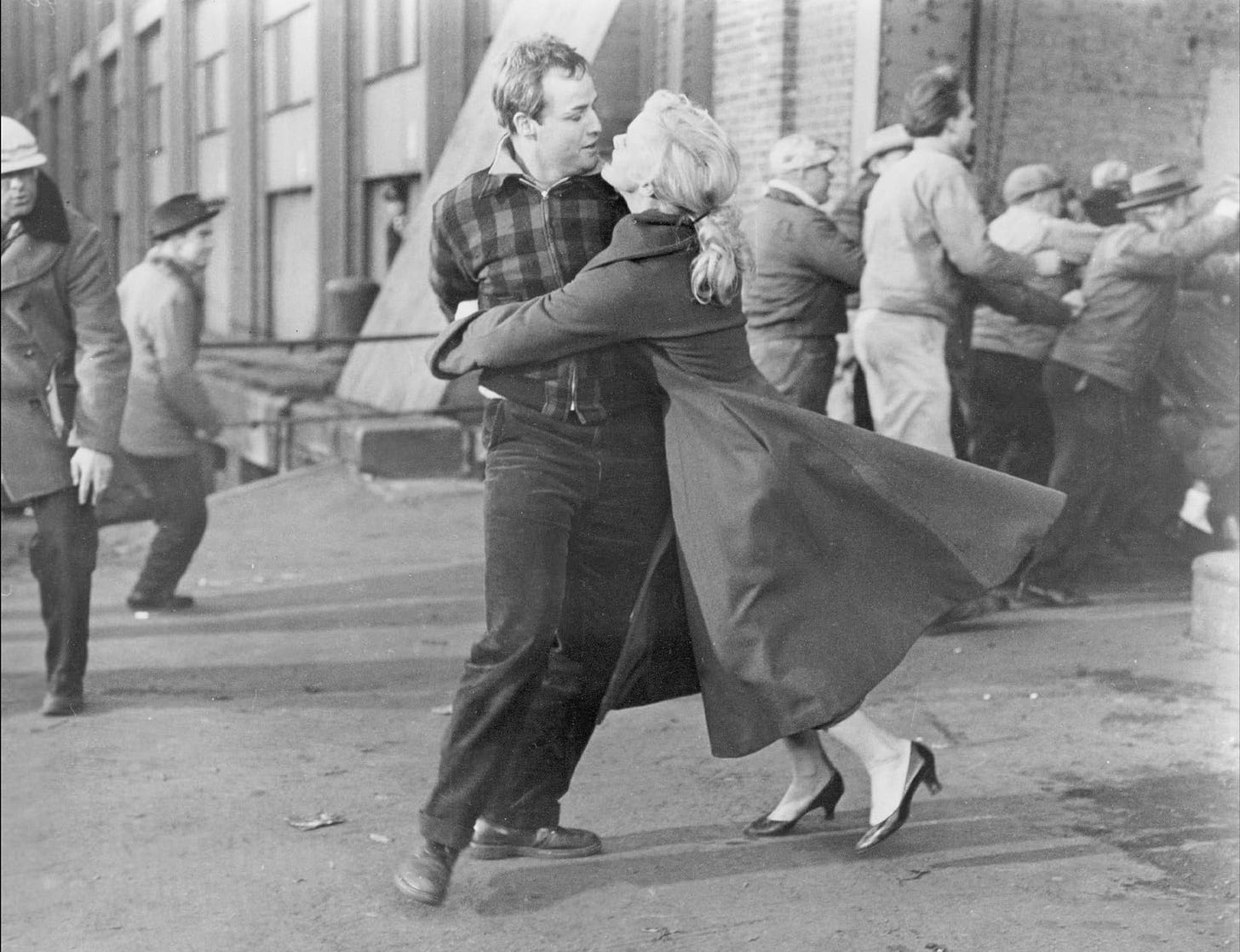
Was Kazan “right” to name names? Was Foreman “right” not to name them? Part of me wants to say, “Of course, Foreman made the right choice. He shouldn’t have been forced to rat on people when it was uncertain what the committee would do with that information.” However, another part of me can see Kazan’s point of view. An immigrant from Greece whose Americanness was therefore more in question, Kazan chose to cooperate with the powers that be to the extent that he could rather than making non-compliance his default setting. One could argue this is the biblical position, citing Romans chapter 13. But one could also argue that Foreman had the biblical position.
I am uncertain that either Foreman or Kazan was a white knight standing alone against the forces of darkness. In fact, if the past decade has taught me anything, it is that times of political upheaval can be very confusing, and the “right” choice is not always clear. In the eyes of God, there is such a thing as black and white. Some decisions are objectively more righteous than others. But from our perspective, caught in the mire of human experience, things are significantly grayer. (For example, you might have admitted under questioning from ICE that your neighbor is here illegally in a previous era, but would you do so now, when you know the person is likely to be imprisoned somewhere that employs torture against its occupants?) Add to that the fact that, even according to the testimony of Scripture, the “right” choice can be made with the wrong motivation, and it is hard to see how anyone could endure these times with a perfectly clean slate.
We are not actually the heroes of this story. In fact, while some of our choices are objectively better than others, each of us is ultimately dependent on the grace of God to justify us. Even Dietrich Bonhoeffer, in opposing Hitler, did not imagine himself to be justified before God. We cannot declare ourselves righteous based on our own performance. That is such an important thing to accept! If we mean to fix whatever is “the problem” with America, we must first accept that “the problem” is not only with “them,” but also with “us,” and that it is not possible for our hands to be completely clean.
That would be a good enough way to conclude this long article, but I have one final thought. Although they made different decisions, both Foreman and Kazan were inspired to create great works of art that speak to universal principles. That difficult hour in American history served as a catalyst for creativity.
What about our own hour? Have there been any truly great films produced in response to the Trump era? Certainly, we have seen attempts such as last year’s Civil War and The Apprentice, but neither of those films seems to have risen above the moment to say something universal in the way that High Noon and On the Waterfront did, nor have they found a wide audience and seeped into the public consciousness. This year’s Academy Awards, which occurred amid a flurry of executive orders at the beginning of Trump’s second term in office, were notable for their lack of political statements. Even Conan O’Brien’s monologue hardly mentioned politics.
While Hollywood is always producing films with Progressive themes, I see few original allegories to the current situation in Washington, DC and beyond. The Academy had a chance this year to honor The Brutalist, a tale that looked at the unglamorous side of American life, but chose instead the dark comedy Anora. The Best Picture winner in the Trump era which speaks most powerfully to the contemporary social-political situation is Parasite, which is not American at all, but South Korean.
The Second Red Scare of the early 1950s inspired both the Left and Right to produce great films that have stood the test of time despite being initially focused on the contemporary situation. I am not certain that our current situation is leading us to produce great art. I cannot think of a single pro-Trump work that qualifies as a cultural classic. (No, this doesn’t count.) Even the anti-Trump projects have not been in league with the classics of yesteryear.
This as much as anything may be a sign of what is wrong with America. We ought to be addressing this moment with art, whether we love Donald Trump or hate him. We ought to be examining our situation, then rising above it to the realm of universal principles. Instead, we chase after the latest distraction in the form of a new tariff, executive order, or social media post. Seldom do we back up far enough to see the larger pattern and respond to it in a positive manner.
Most of us cannot produce great works of art. We have neither the talent nor the resources. Nevertheless, we can seek out works that help us understand and respond to our present hour. I think this may be one strategy for helping us all survive what is bound to be a rather crazy four years. If we keep our eyes glued to our social media feed or cable news channel, we are bound to be anxious. We must slow down, absorb things in longer sittings, and take time out to contemplate. And as always, I would recommend a visit to the past to understand the present.
So, watch High Noon and On the Waterfront, then go find works of art that inspire you personally. Be careful not to automatically view yourself as the hero of your own story. Remember that real life is complicated, and people need grace. For the only way any society holds together in unity is through the constant application of grace.
[1] https://nypost.com/2017/03/12/commie-writer-turned-high-noon-into-subversive-hollywood-hit/




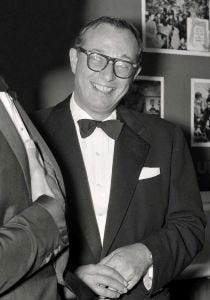
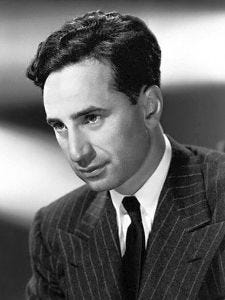
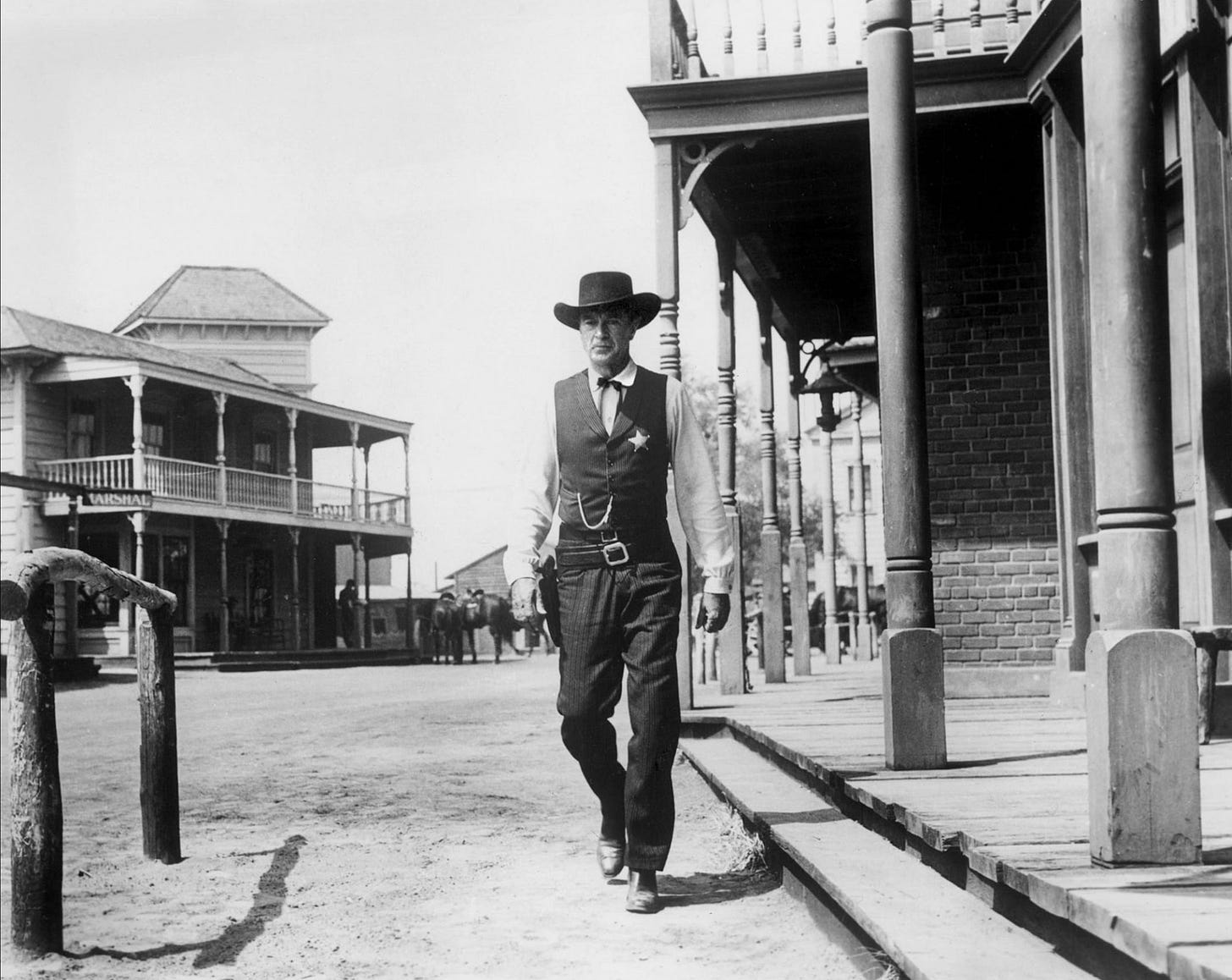
Both directors were right in their decisions and those two movies had powerful lessons; I loved both of them. Its amazing that despite man always "attempting" to do good, he usually pulls out a menstrual rag on all his actions. Yet God uses it to clean us up with his blood covering our sins. We ultimately are tossed by His winds, yet we come out unscathed in Christ's resurrection.
Amy, this essay is brilliant. I say that even though I probably wouldn't agree with every conclusion you draw here. That's the beauty of art and ideas. I found this essay challenging, thought-provoking, and best of all a brilliant appropriation of both art and history. My favorite point was your observation of our decadence -- that we are not producing art to confront the moment. I've been thinking about this in the context of music. Where are the great protest songs and anthems of solidarity and hope? As a lover of the music from the 70's-90's, I'm really struck by how uninspired so much contemporary pop and rock is in a world that should be a flashpoint for creativity.
Also, great movie selections. Your analysis was really interesting. I was thinking of other stories that rise to this occasion, films like Good Night and Good Luck, or Dark Waters. Those are true stories of course, not fables. For that, I find myself sinking back into Lord of the Rings again. Tolkien really wrote a tale for all ages, not only his.
Thank you again for your gifts. Keep writing!